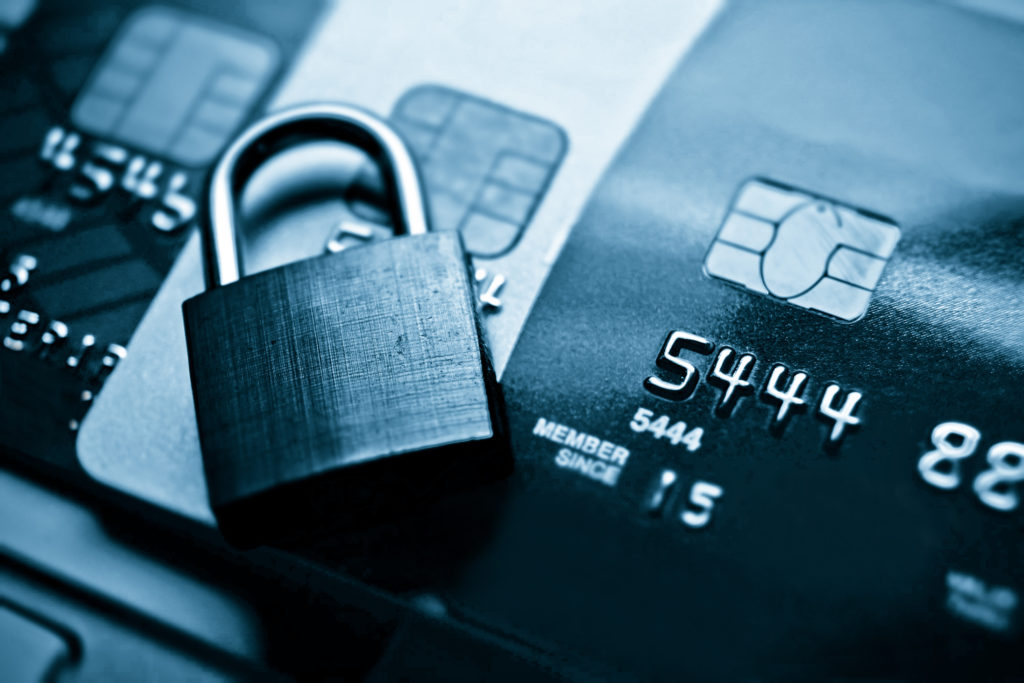 Author, Andrew Gibson
Author, Andrew Gibson
Last Updated on August 4th, 2024
There are several ways that you can make a large money transfer. I’ll explain the best, safest and cheapest options, as well as how to choose the right money transfer company.
What are the costs of a large money transfer?
As a general rule, large money transfers get a better deal than smaller sums.
Like most other things in life, there’s a benefit to buying in bulk.
There are two types of charges for a large money transfer:
- Fees
- Exchange rates
Fees (and how to avoid them)
Everyone hates fees.
What’s more, when it comes to international money transfers, the fees are often hidden or impossible to figure out until after you’ve sent your money.
Banks are the masters of this game.
They tend to have an assortment of fees they add to international money transfers.
You may come across:
- Transfer fees (£10-£25)
- Recipient fees (£10-£15)
- Intermediary fees (£10-£20)
- Priority payment fees (£20-£25)
- Tracking fees (£15-£20)
- Branch fee (£10-£20)
The list is long, right?
The exact cost varies from bank to bank, but the info above gives you a ballpark idea of what to expect.
These fees tend to be fixed regardless of the transfer size.
So even if you transfer a large sum of money, your bank won’t waive the fees.
Some money transfer companies also charge fees.
While I can’t list the fees for every company out there, the point is they aren’t necessary.
I believe companies make things complicated for a reason.
All these fees are just made up by companies to take an extra bite out of your money.
As a quick tip, some money transfer companies don’t charge any fees.
At Key Currency, we don’t charge any fees.
The cost of our service is included in the exchange rate. That way you don’t have to worry about any additional or hidden fees.
It makes it simple for our customers as they are clear on how much money they will receive.
Exchange rates (this is a key cost!)
The exchange rate is the most important cost of transferring a large amount of money.
A large money transfer should receive a better exchange rate than smaller sums.
In foreign exchange, you may have come across ‘interbank rates’.
Interbank rates are like wholesale rates used by big banks to trade with each other.
The more money you send, the closer you can get to the interbank (wholesale) rate.
It’s worth noting, the exchange rates you see online are usually interbank rates.
They are not customer rates.
That key bit of information is often buried somewhere in the fine print (a legal disclaimer).
Here’s another tip for you…
If you use a comparison site or some online tool, it’s likely to be a teaser rate, and in my experience, it won’t be a live market rate. It’s often a waste of time.
When it comes to exchange rates, the best thing to do is get a quote directly from a money transfer provider.
At least if you get a genuine quote, you can budget your money effectively.
Whether you are looking to buy a property, boat, car, or investment, you want to have a clear idea of the sum of money you’ll be getting.
That’s why you want to get a genuine rate. You can firm up your plans.
Exchange rates can vary quite a bit.
The best way to transfer a large sum of money
If you are looking to make a large money transfer, you have two choices:
- use a bank, or
- use a money transfer company.
Both banks and money transfer companies tend to use SWIFT to make an international transfer. It’s a highly secure and standardised payment system.
The main difference between your options is the cost.
If you’ve already done a bit of homework, you will have noticed the high street banks aren’t that competitive on exchange rates and they charge a bunch of fees.
Also, if you are transferring over £50,000, you may find your bank will restrict the amount you can send. Money transfer companies don’t tend to have size limits.
By using a money transfer company, you can save up to 3%-4% on the exchange rate compared to a bank, which is why it’s the best way to transfer a large sum of money.
Bear in mind, large money transfers are highly sensitive to small changes in the exchange rate.
As a simple example, if you are planning an international transfer of £100,000, then a 3-4% difference works out at £3,000-£4,000 in extra exchange rate costs.
That’s a lot of money in anyone’s books.
How to choose a money transfer company
If you’ve done a few searches on Google, you may already be confused about which money transfer company to use.
A lot of the companies look and sound the same!
But there are some critical differences.
I will give you a quick rundown.
Broadly speaking, there are 3 types of money transfer companies:
- Money remittance companies
- Money transfer apps
- Currency brokers
Money remittance companies mainly deal in cash transfers.
The main players are Western Union, Money Gram, Remitly, and WorldRemit.
They can be expensive and typically have limits of around £2,000.
That’s no good for large money transfers.
Money transfer apps are the new kids on the block. These are effectively technology driven. You download an app and do it yourself.
Some of the better-known names are Wise, Revolut, Zelle, PayPal, Paysend, and CurrencyFair.
There’s no human interaction, and customer support is via email or web chat.
They can be cheap but may also have daily limits to contend with. In my experience, most people don’t want to send a large amount of money using an app.
The final type of money transfer company is a currency broker.
They tend to specialise in large international money transfers.
You will find currency brokers are usually a fair bit cheaper than banks and offer a better service (you get human-to-human contact).
Some currency brokers can also provide help in setting up your payment and guidance on exchange rates and the timing of your transfer.
This can ultimately save you from making a costly mistake by exchanging your money at the wrong time.
As currency brokers give you human help and don’t tend to have any limits on the amount you can send, they are an ideal option for transferring large sums of money.
How safe is a large money transfer?
Anyone sending a large sum of money will naturally want some assurance of the safety and security of their money.
Fortunately, there are some ways you can get comfortable with this.
Banks and money transfer companies in the UK are normally Authorised and Regulated by the Financial Conduct Authority (FCA).
The FCA undergoes a thorough process before authorising a company and then requires those companies to follow a strict set of rules and procedures.
One of the key protections of an FCA-authorised company is that they must segregate customer funds.
It means customer money must be held separately from any company money in a safeguarded bank account.
That’s why it’s very important to only use an FCA Authorised company.
When choosing a money transfer company, you can check if they are Authorised by typing the company’s name into the FCA register.
You can also normally see the company’s FCA Authorisation number on the footer of their website.
What information do you need?
To make a large money transfer, you need to gather some information about the recipient:
- Name of the person receiving the money
- Recipient’s address
- Name and address of the bank receiving the money
- SWIFT code of the bank (also known as a BIC)
- Recipient’s bank account number (IBAN)
A currency broker can help you get this information if you want a helping hand.
How a money transfer works (in 4 simple steps)
There are four steps to a money transfer.
The process is the same whether the sum you send is big or small.
Step 1 – Register as a customer
Before you can make a money transfer, you will need to register as a customer.
You can register in minutes, either online or by phone.
Registering is an identification check.
It’s required by anti-money laundering rules.
If you have a residential address in the UK, it can be quick and easy to verify who you are.
Most UK citizens are identified using their name, address, and date of birth.
If you don’t have an address in the UK, then you may need to provide the usual proof of ID and proof of address.
Step 2 – Secure an exchange rate
The next step is to lock in an exchange rate.
You let us know the currency you have and the currency you need, as well as how much money you wish to exchange. We will then provide you with the latest exchange rate.
You can decide whether to go ahead or not. Nothing will happen without your permission.
If you are happy to proceed, the exchange rate will be secured for you.
Step 3 –Send us your funds
The next step is to send us the funds to exchange.
We will provide you with the details of our safeguarded client account.
You can send in the money via a normal bank transfer.
Step 4 – Your money is converted & sent out
Once your funds are received, they will be converted into the currency you need at the exchange rate agreed with you.
The converted funds are then sent to the recipient bank account requested by you.
Most international money transfers take 2-5 working days to complete.
Your money is normally sent out the same day, but the receiving banks take a few days to clear your money into your account. That’s what takes time.
Quick Summary
- Use a money transfer company that is Authorised and Regulated by the FCA as they are required to safeguard your money.
- The main two costs of a large money transfer are the exchange rate and any fees charged.
- A bank, money transfer app, or currency broker can transfer large sums of money internationally.
- Currency brokers can be a good option for a large money transfer because they offer personal guidance, no size limits, and can be a lot cheaper than banks.
Key Currency is a leading currency broker. Our service is ideal for large money transfers. Unlike impersonal banks and money transfer apps, we provide personal help and guidance. Having someone you can talk to over the phone can be a great comfort and save you time and money. We make things as easy as possible for you whilst helping you transfer your money at the best possible rate. We can offer you significant savings through our great exchange rates, and we charge no fees. At Key Currency, we don’t hide behind corporate jargon or a faceless website. You can read more about us and see exactly who is dealing with your transfer. We are an Authorised Payment Institution regulated by the Financial Conduct Authority (No.753989). For your peace of mind, we use safeguarded bank accounts for all money transfers. And why not also check out our 2,500+ customer reviews on Trustpilot? If you are looking to transfer a large sum of money internationally, request a quote below and find out how we can help you.Send money with Key Currency

